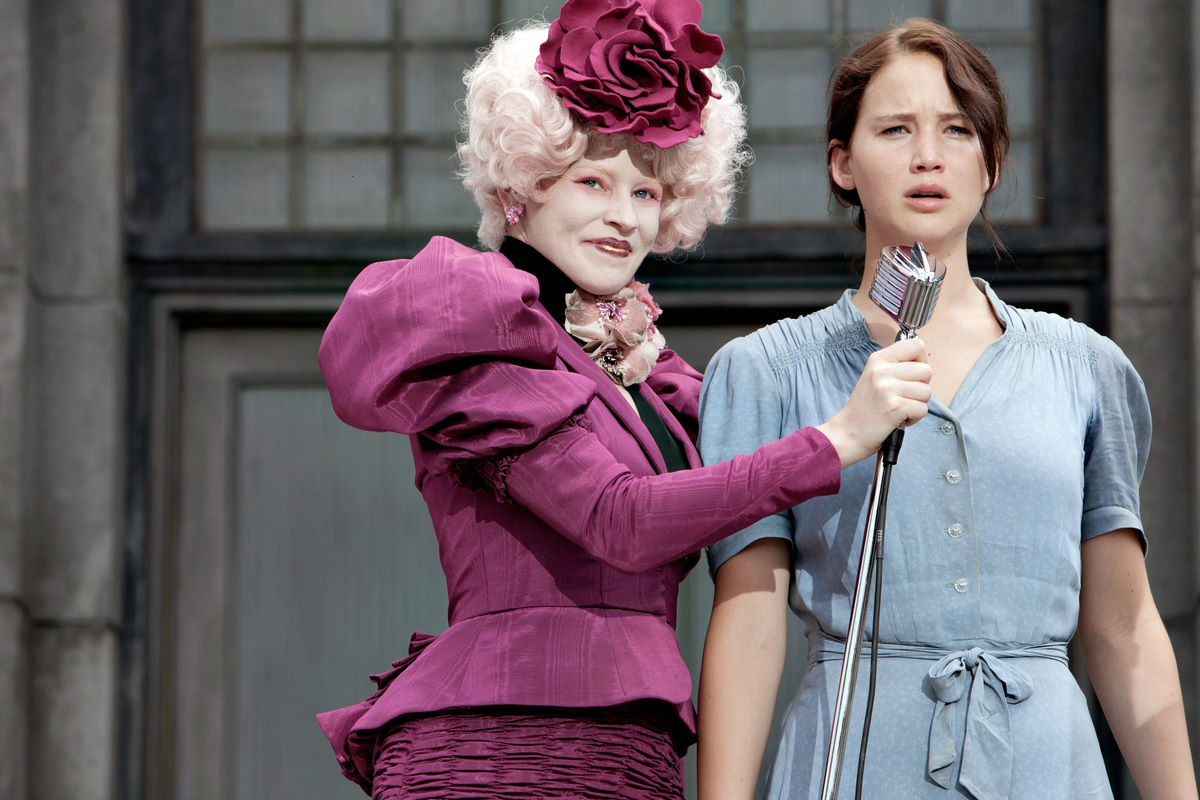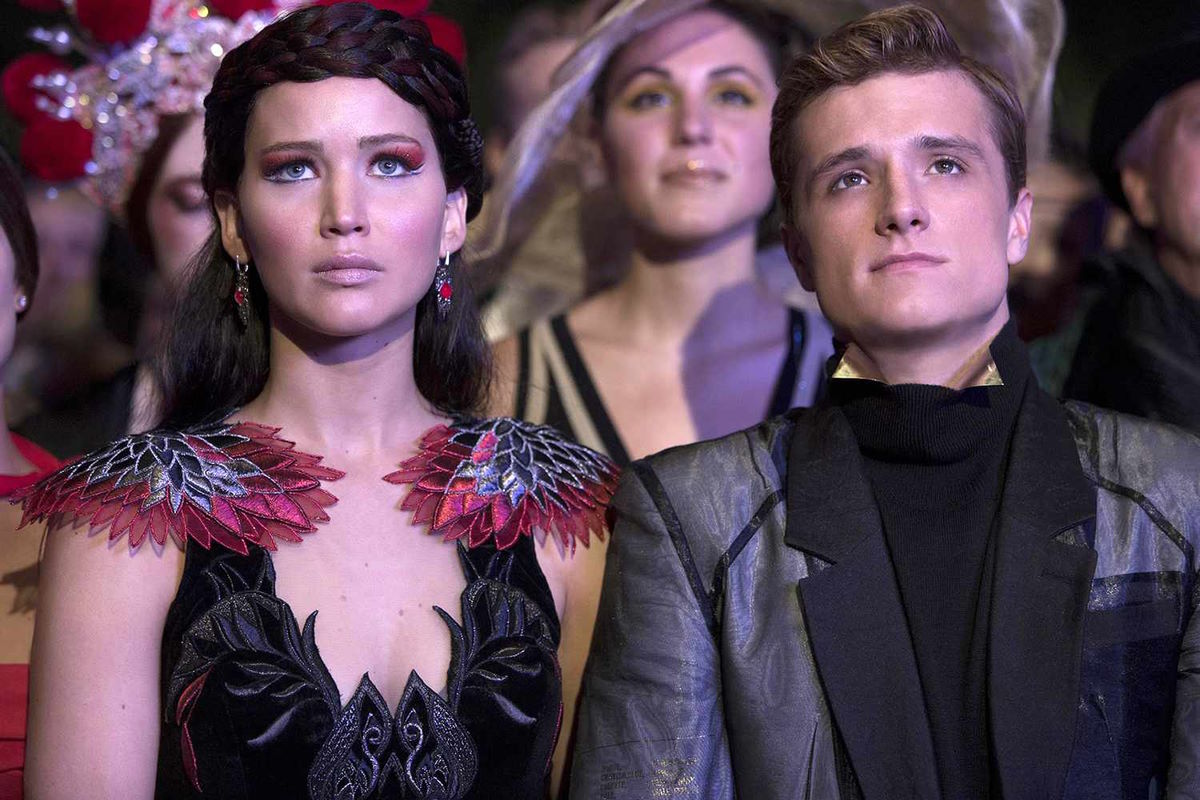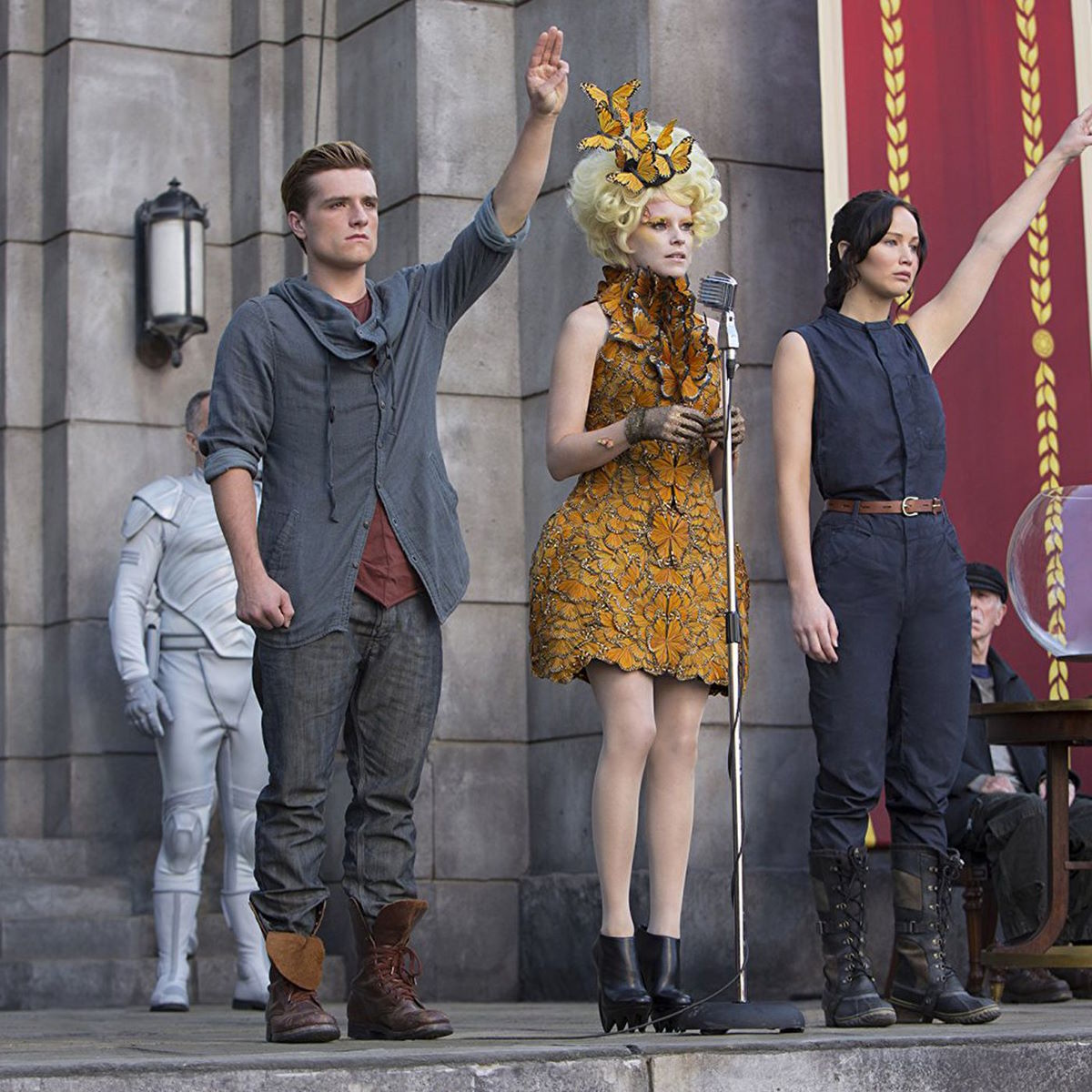“The Hunger Games” is a young adult dystopian series that has captivated readers and viewers alike with its thrilling storyline and complex characters. However, beyond its entertainment value, the series also offers a powerful political commentary on society and government. In this blog post, we will explore the political commentary in “The Hunger Games” series, examining how the books and films highlight issues like power, class, and control.

Dystopian Society: A Warning of What Could Happen
Dystopian societies have been a common theme in literature and film for decades, and “The Hunger Games” series is no exception. This fictional world portrays a society that has collapsed under the weight of its own corruption and greed. In this society, the government is not concerned with the welfare of its citizens, but rather with maintaining power and control. This is achieved through the annual Hunger Games, a brutal competition where children from each district are forced to fight to the death for the entertainment of the Capitol’s residents.
The depiction of a dystopian society in “The Hunger Games” serves as a warning of what could happen if we allow power to be concentrated in the hands of a few individuals or groups. The series highlights the dangers of a government that is more concerned with its own interests than with those of its people. It shows how, in such a society, basic human rights can be ignored and even suppressed. The lack of freedom and the oppressive conditions of this dystopian society are a reflection of the worst-case scenario that could occur if we do not safeguard our democratic systems.
“The Hunger Games” also highlights the consequences of complacency in the face of injustice. The citizens of the districts are forced to participate in the Hunger Games, but they are not powerless. They have the ability to rise up against their oppressors and demand change. However, many choose to accept their fate and submit to the government’s control, ultimately perpetuating the cycle of oppression. This serves as a cautionary tale, reminding us that we must be vigilant and fight for our freedoms and human rights.
In conclusion, the dystopian society depicted in “The Hunger Games” series serves as a warning of the dangers of unchecked power and the importance of fighting for democracy and human rights. The story encourages us to be vigilant and to take action when our rights are threatened. By highlighting the consequences of complacency and the value of individual action, “The Hunger Games” series reminds us that we must never take our freedoms for granted. It is a powerful message that is as relevant today as it was when the books were first published.

Political Commentary: Issues of Power, Class, and Control
Additionally, the series also comments on the role of media and propaganda in politics. The Capitol controls the media and uses it to manipulate the citizens of both the Capitol and the districts. They present the Hunger Games as a noble event, where children fight for honor and glory, rather than a brutal spectacle designed to remind the districts of their place. This mirrors the real-world phenomenon of governments using media to control the narrative and sway public opinion.
Another political commentary in “The Hunger Games” is the idea of resistance and rebellion against oppressive governments. The series shows the districts rising up against the Capitol, led by Katniss Everdeen, who becomes a symbol of hope and defiance. The series emphasizes the importance of fighting against oppressive regimes and the power of resistance and rebellion.
Overall, “The Hunger Games” series provides a powerful commentary on issues of power, class, control, media, and resistance. The series serves as a warning of what can happen when governments become too powerful and emphasizes the importance of standing up against oppression and fighting for a more just society.

Young Adult Fiction: Making Political Commentary Accessible
Furthermore, young adult fiction, like “The Hunger Games,” has the unique ability to captivate readers and viewers, often leading them to become invested in the story and its characters. This investment can create a powerful emotional connection that allows readers and viewers to understand and empathize with the characters’ struggles and experiences. By using this emotional connection, “The Hunger Games” is able to convey its political commentary in a way that is both impactful and memorable.
Moreover, the popularity of the young adult genre has allowed for “The Hunger Games” to reach a wider audience and spark important conversations about politics and society. The series has been praised for its ability to engage young readers and viewers in political discussions, leading to a greater understanding and awareness of real-world issues. In this way, “The Hunger Games” serves as a prime example of how young adult fiction can be used as a tool for education and social commentary.
Conclusion
“The Hunger Games” series has also opened up the possibility for more diverse and inclusive representation in young adult fiction. The character of Rue, a young girl from District 11, was portrayed as Black in the books and the movie, breaking the convention of whitewashed casting in Hollywood. This casting choice was significant as it allowed young readers and viewers of color to see themselves reflected in a popular media franchise, paving the way for more diverse representation in young adult fiction.
Overall, “The Hunger Games” series serves as a reminder of the power of storytelling and the importance of exploring complex issues in a way that is both accessible and thought-provoking. By addressing issues of power, control, and class, the series encourages readers and viewers to engage in critical thinking and conversations about their own societies and governments. As young adult fiction continues to evolve, “The Hunger Games” remains a significant milestone in the genre’s ability to offer political commentary and spark social change.
As you wrap up reading “The Political Commentary in ‘The Hunger Games’ Series: Dystopian Society, Political Commentary, Young Adult Fiction,” I urge you to take action. Let’s not stop at just analyzing the political themes in movies and TV shows, but let’s continue to explore the vast world of media for more uplifting stories and valuable life lessons.
Whether it’s through books, movies, or TV shows, we can learn so much from the stories we consume. So, let’s actively seek out media that inspires us and teaches us about the world. And, as we do so, let’s also use our newfound knowledge to make positive change in our communities and the world at large.
So, join me in this call to action. Let’s continue to engage with media in a critical and thoughtful way, and let’s use what we learn to create a brighter future for ourselves and those around us.

